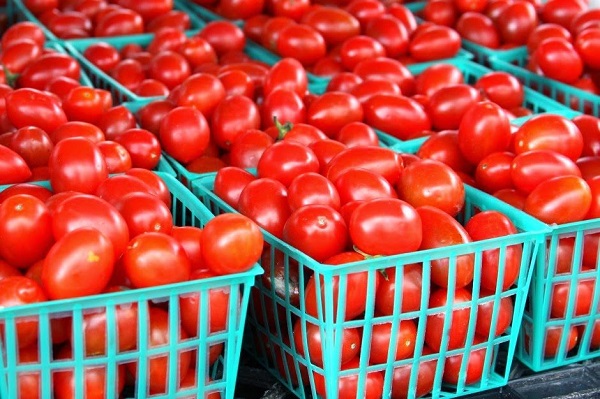Starting Palm Wine Business For Export
Palm wine is a hugely popular beverage in many parts of West and Central Africa and consumed by millions of people in both regions. Known by several names, it is commonly referred to as ‘pami’, ‘emu’ and ‘nkwu’ in Nigeria, ‘nsamba’ in Congo, ‘nsfufuo’ in Ghana and ‘matango’ in Cameroun. Palm wine enjoys a strong cultural identity and significance in these countries and is usually the preferred drink during traditional ceremonies and events (such as weddings and funerals).
Palm wine is a cloudy white drink produced from the sap of various species of palm trees which are abundant in Africa’s dense tropical rain forest regions. It is traditionally extracted by a ‘tapper’ and the quantity of sap that can be taken from one palm tree depends on the mode of extraction, the palm species, season and the fertility of the soil.
Freshly collected palm wine is very sweet and non-alcoholic. However, fermentation begins naturally and immediately after collection. As time progresses, the wine becomes more alcoholic and has some sourness and acidity to it.
Palm wine is also used to produce a strong and highly alcoholic local gin popularly referred to as ‘ogogoro’ and ‘Sapele water’ in Nigeria and ‘akpeteshie’ in Ghana.
Despite its huge popularity in parts of the continent, very little progress has been made so far to exploit the lucrative potentials of producing palm wine on a commercial scale like beer (which is more widely available and consumed).
Fortunately, a technology have been successfully developed that can help transform palm wine into a commercial success and exports to customers in the US and Europe. The current production and supply cannot even meet up to 10% of millions of demand across Africa, and the world.
Contents of Palm wine
The Following are found in palm wine;
Sugar, Protein, Carbohydrate, Amino acid, Vitamin C, Yeast, Bacteria, Potassium, Zinc, Magnesium, Iron, Vitamin B1, B2, B3 and B6.
Uses and importance of palm wine
Palm wine is an integral Part of some West African Society. The Bond between Palm wine and the People of South-East and South-South Nigeria dates back to pre-colonial times. As kola nut is powerful, so is the Palm wine. While the local Gin product of Palm wine is more popular in coastal communities, the Ibos had and still have a direct relationship with crude Palm wine. You see its importance as an essential drink in traditional Ibo Ceremonies like the Ibo native law and Custom, Traditional Festivals, and other local and traditional gatherings.
Health benefits
Palm wine improves eyesight: Palm wine helps in maintaining good eye health. This is because it contains the antioxidant Vitamin C (ascorbic acid) which is also found in other fruits and vegetables. Vitamin B1 (thiamine) also helps in improving our vision. This is why some school of thought argue that our grandparents in the village have better eyesight than us because palm wine is their beverage.
Reduced risk of cardiovascular diseases: Research has showed that drinking moderate amounts of palm wine has been associated with a reduced risk of developing cardiovascular diseases such as heart failure. This study was conducted by Lingberg and Ezra in 2008. Palm wine contains potassium which has been proven by research to improve heart health and bring down hypertension. However drinking it in excess has adverse effects like destroying the liver.
Palm wine can help fight against cancer: Palm wine contains vitamin B2, also known as riboflavin. Riboflavin is an antioxidant which helps in the fight against some cancer causing agents called free radicals.
Palm wine helps in maintaining a healthy hair, skin and nails: The Iron and vitamin B complex found in palm wine are needed for a healthy skin, hair and nail. Iron is very essential for the development, growth and functioning of some cells in our body. This property of palm wine makes it helpful in promoting wound healing by repairing our tissues and promoting the growth of healthy cells.
Palm wine promotes lactation: Palm wine is being used by many natural healers in Cameroon, Nigeria, Ghana and other parts of Africa to help a lactating mother when she has limited breast milk production. Research is needed to investigate the property of palm wine that makes it stimulate the production of breast milk.
Precautions
Do not drink fermented palm wine in excess. Fermented palm wine in excess is detrimental to our health. Fermented palm wine is locally referred to as “strong white mimbo” Fermented palm wine contains a high percentage of alcohol, which is probably higher than that found in some of the alcoholic beverages we drink. This fermented palm wine destroys our kidney, liver and other systems in our body. Drinking alcohol in excess is a risk factor for hypertension.
Bakery and preservative use of palm wine
Indians are known to use Fermentation due to the wild yeast content of Palm wine to produce Produce special Local Bread. Knowledge from this practice could be instrumental in improving the Art of baking in Africa. The extra cost of Importation of baking yeast could be averted if specially cultured Palm wine yeast are produced in commercial value. The Yeast could also be combined with other locally source materials and used to develop other baked food products like Cakes and Biscuits.
Ethanol is a reputable Food Preservative and Agent of Sterilization. Local Gin prepared from Palm wine contains a considerable amount of Ethanol that it is easily labelled ETHANOL. Further purification could produce a purer form. Bacteria Oxidation of Palm wine could also produce Ethanoic acid which could combine with locally made Lye and the Ethanol to make a potent Food Preservative.
Manufacturing process
The preservation and bottling of the palm wine is achieved by arresting the activities of yeast, thus stopping the fermentation of the product. The preserved and bottled palm-wine, so obtained, becomes considerably stable with a maximum alcoholic content of 4% v/v. and can be cheaply bottled in beer bottles and corked with crown corks.
In this form, the product is able to stay for about six (6) months on the shelf without loosing its taste and value. Also, handling during distribution does not expose the bottled palm wine to any form of contamination. The product is best served chilled for maximum satisfaction.
Harvesting of raw material
The raw material is freshly picked palm wine. To ensure availability of raw materials in sufficient quantity and quality, our organization responsible for the harvesting is fully trained in good collection practices of palm wine. Upon receipt of the raw material, a number of checks are performed to ensure reliability and compliance of the product.
Filtration: The wine is filtered in order to eliminate any particles that may be present.
Packaging: After filtration, the wine is packaged in bottles of 33cl and 65cl.
Pasteurization: Pasteurization is used to destroy any micro-organisms that may be present in the wine (essentially yeast cultures). A temperature-controlled discontinuous pasteurization method which preserves the nutritional qualities and flavor of the wine can be used.
Cooling, packaging and labeling: At the end of the pasteurization process, the wine is chilled and labeled.
Storage of finished product: the product thus obtained is put into cardboard boxes and stored in dry and cool location.
Labour Requirement
The project requires the services of both skilled and unskilled labour force. For the capacity recommended for this project, four administrative personnel are required; sales clerk, accounts clerk, purchasing clerk and security. Five factory workers are also required – supervisor, two machine operators and two factory hands.
Machinery and Equipment
The machineries and equipment are locally available. They are simple and can be fabricated locally. The list is as follows:
i. Pasteurizer.
ii. Homogenizer/filler with stainless screen.
iii. Corking machine.
Other accessories are: work tables, sitting stools, washing trough (Galvanized or plastic)
Space requirement
10m X 20m is required for the project. This will accommodate production, storage of materials and finished product.
Feasible Production Program
No of hours per day 8hrs.
No of days per week 5 days
No of days per year 250 days
No of batches per day 2 batches.
Volume of production 800 bottles/days
Maximum installed output capacity 1000 bottles/days
Maximum efficiency level 80%
Recommended capacity utilization 80%
Profitability (Naira)
Total sales from 200,000 bottles at N200bottle N40,000,000.00
Total production cost N6,821,220.00
Gross profit N33,178,780
Less Corporate tax at 30% ??
Net profit ??
Estimated Capital Requirement (Naira)
The total equipment cost 427,000.00
Estimated fixed capital 1,030,690.00
Estimated working capital 1,222,900.00
Total capital 2,253,590.00
Shipment & Delivery
Delivery method: Air/Maritime/Road
Copyright MMS Plus.
All rights reserved. This material, and other digital content on this website, may not be reproduced, published, broadcast, rewritten or redistributed in whole or in part without prior express written permission from KINGS COMMUNICATIONS LIMITED.








